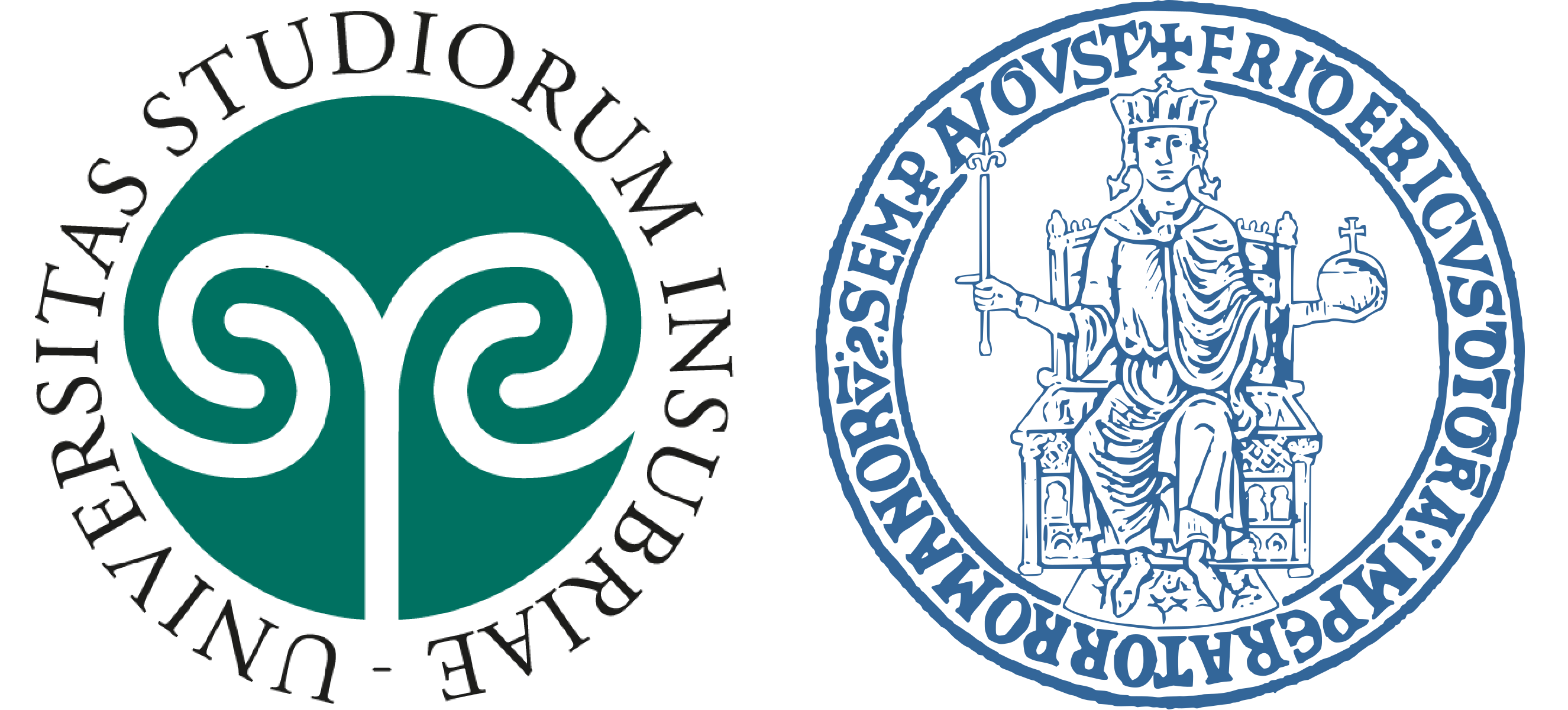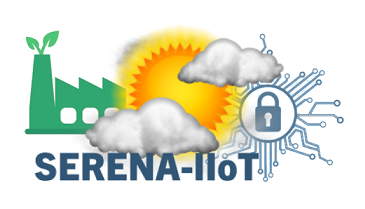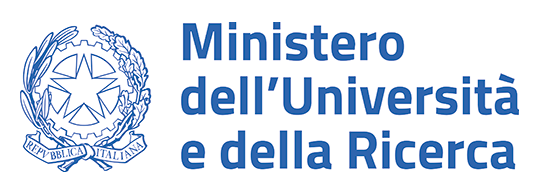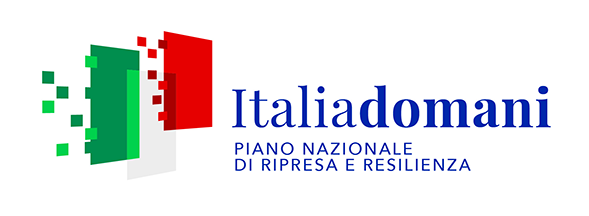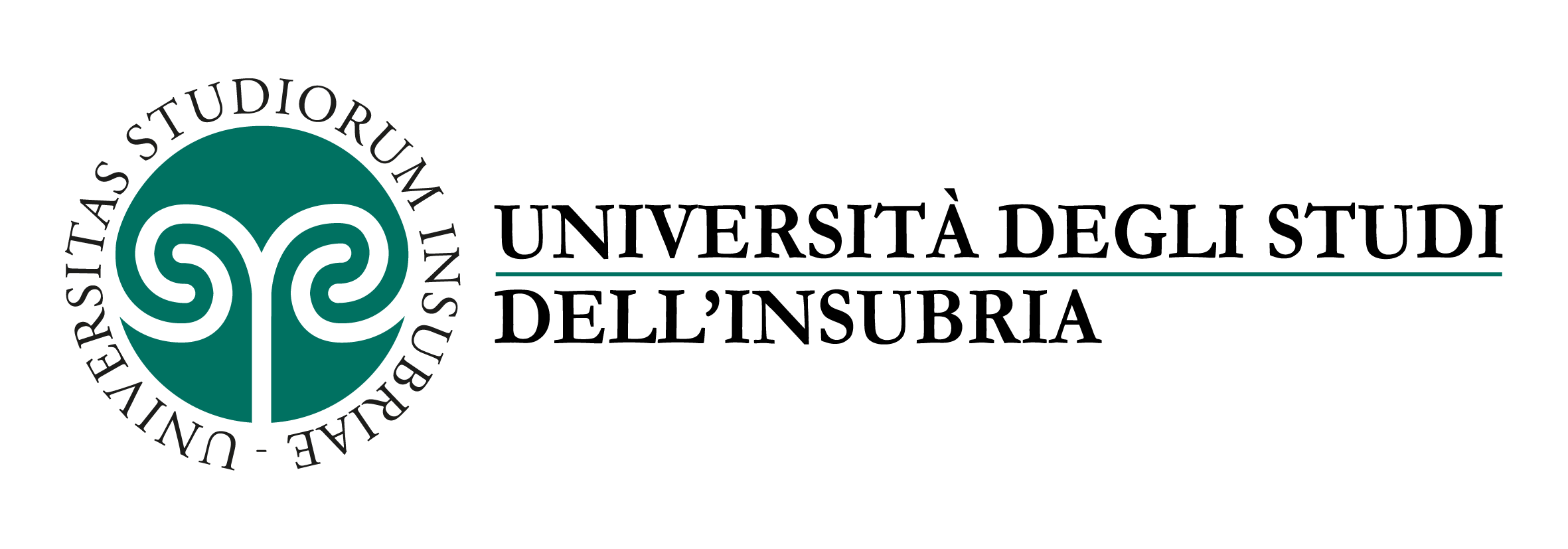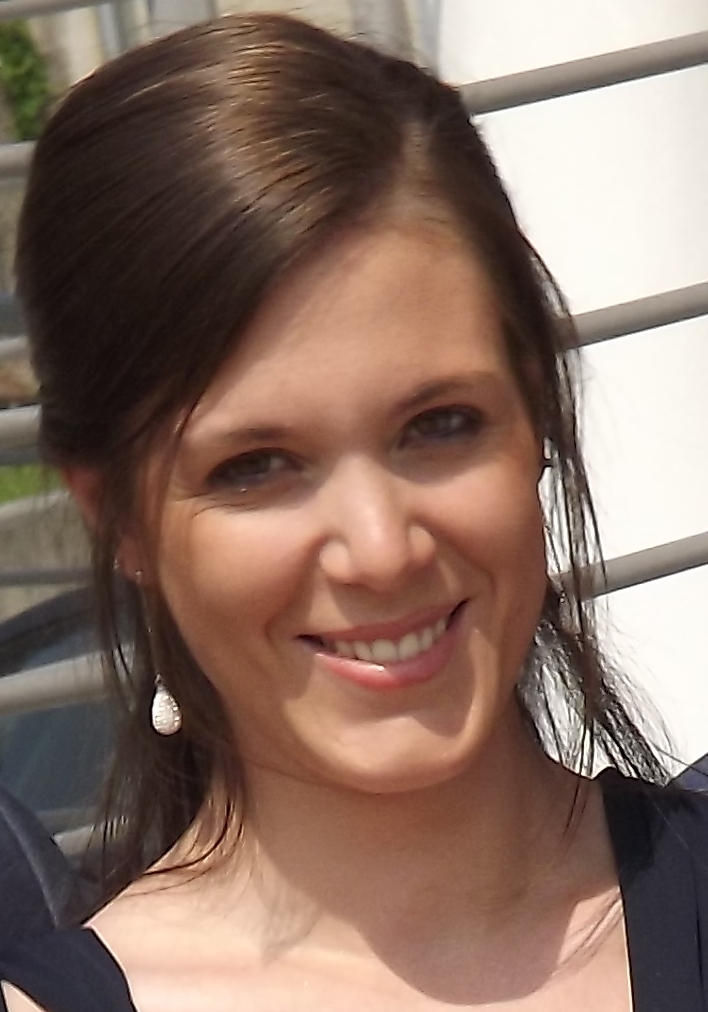Team
The SERENA-IIoT project involves the collaboration of two research groups, whose topic research areas are totally complementary with respect to SERENA-IIoT's goals. In fact, UNINSUBRIA and UNINA are internationally renowned for their contributions
to advances in knowledge and methodologies in the areas of IoT security and privacy (UNINSUBRIA) and dependable software engineering (UNINA).
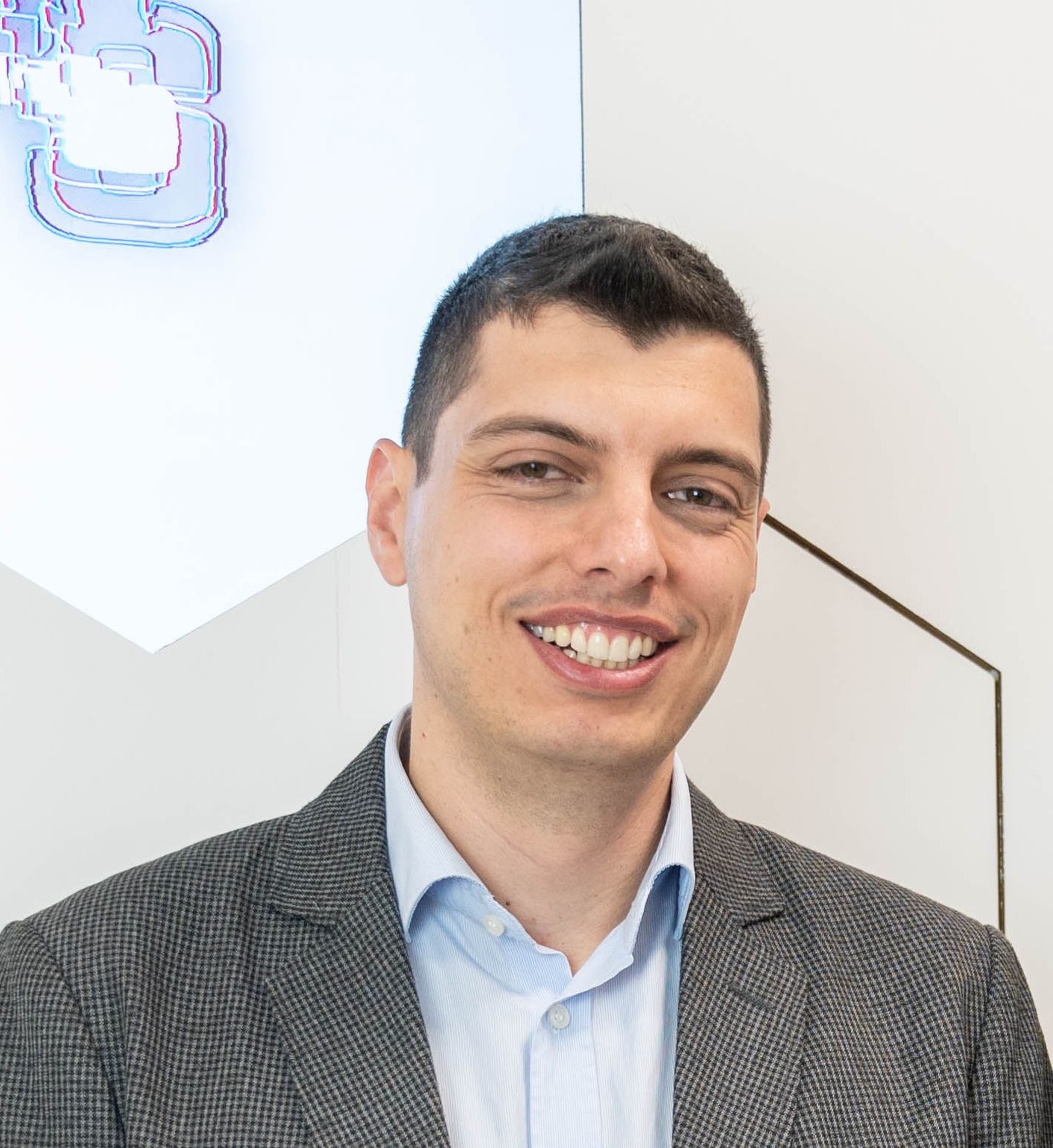
Raffaele Della Corte
Università degli Studi di Napoli Federico II
CO-PRINCIPAL INVESTIGATOR

Domenico Cotroneo
Università degli Studi di Napoli Federico II
MEMBER

Vittorio Orbinato
Università degli Studi di Napoli Federico II
MEMBER

Simona De Vivo
Università degli Studi di Napoli Federico II
MEMBER
Targets
The SERENA-IIoT project aims at enhancing knowledge in the next-generation IIoT systems (e.g., in transportation, manufacturing, automobile, and marketing areas) by introducing novel solutions concerning reliability monitoring and security. Information needs to be reliable and must be
processed in a timely way, avoiding undesired delays that may result in resource losses or even in catastrophic situations for some safety-critical applications. Despite the definition of novel security models targeted to IIoT data protection, the scope of providing improved intrusion
detection mechanisms is also open to recognize unknown attacks.
Crucial challenges include:
- Collection, analysis, and protection of data from different data sources, facing heterogeneous and unstructured data formats;
- Handling large-scale data analysis and security tasks on devices with limited computational resources;
- Near-real-time anomaly and attacks detection to enable timely recognition and response;
- Need to efficiently filter data at edge/fog level to limit the amount of information exchanged with the cloud layer.
To cope with such issues, objectives are detailed hereby, concerning system architecture, data analytics techniques, and security mechanisms.
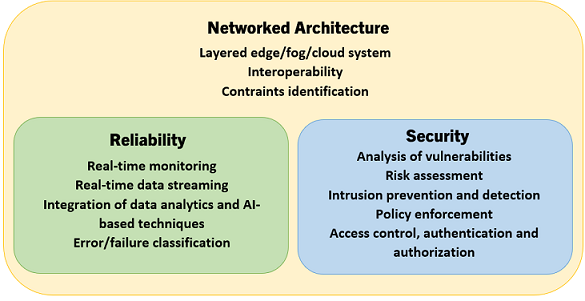
Concerning the architectural aspects and the tasks related to data analysis of SERENA-IIoT, the following objectives will be pursued:
- Define techniques to gather and monitor information within the IIoT system.
- Define solutions for guaranteeing interoperability among IIoT system's components within the considered edge/fog/cloud computing architecture, which could comprise heterogeneous devices.
- Define strategies and architectural designs to integrate data analytics and AI-based techniques into the IIoT environment.
- Define mechanisms to improve the reliability of IIoT systems.
Concerning the security requirements of the SERENA-IIoT project, the following objectives will be pursued:
- Conduct an analysis of the IIoT system's vulnerabilities.
- Assess the trustworthiness of the IIoT system, by carrying out a risk evaluation process concerning the various network layers.
- Define security mechanisms referring to intrusion prevention systems.
- Define anomaly intrusion detection mechanisms, where a runtime security monitor operates on the state of the industrial system.
Workplan
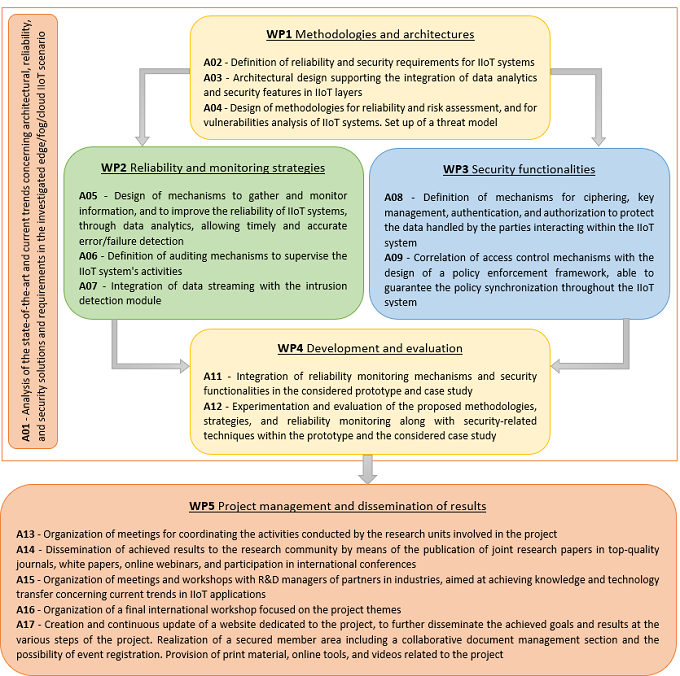
News

27 June 2025
A meeting and poster about Serena-IIoT project will take place at DSN 2025
Serena-IIoT will be presented in Naples as a partner of the DSN conference.

27 June 2025
Serena-IIoT project is a partner in SecSoft 2025
Serena-IIoT will be presented in Budapest as a partner of the SecSoft workshop, inside the NetSoft main conference.
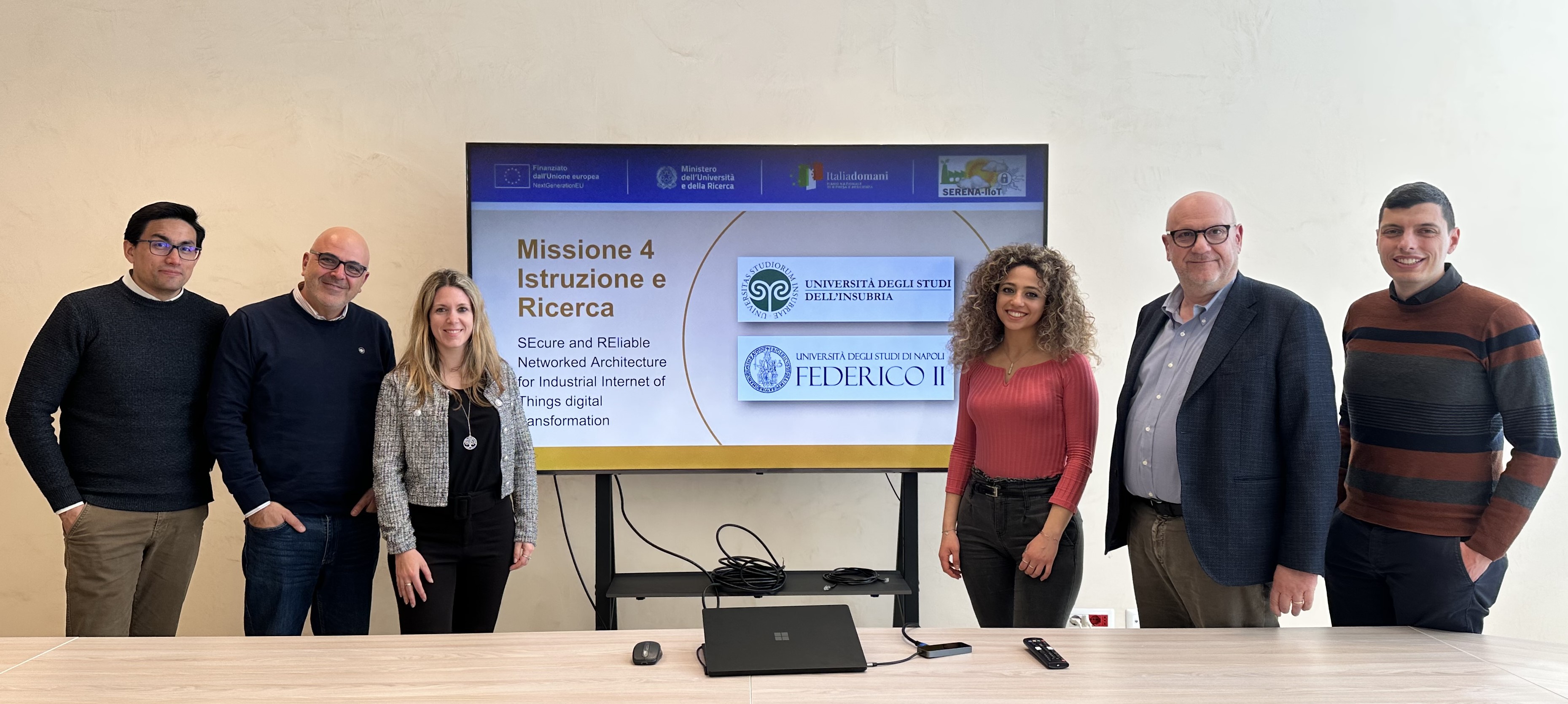
10 April 2025
Meeting of Serena-IIoT project in Varese
Some deadlines, and the organization of important dissemination activities.
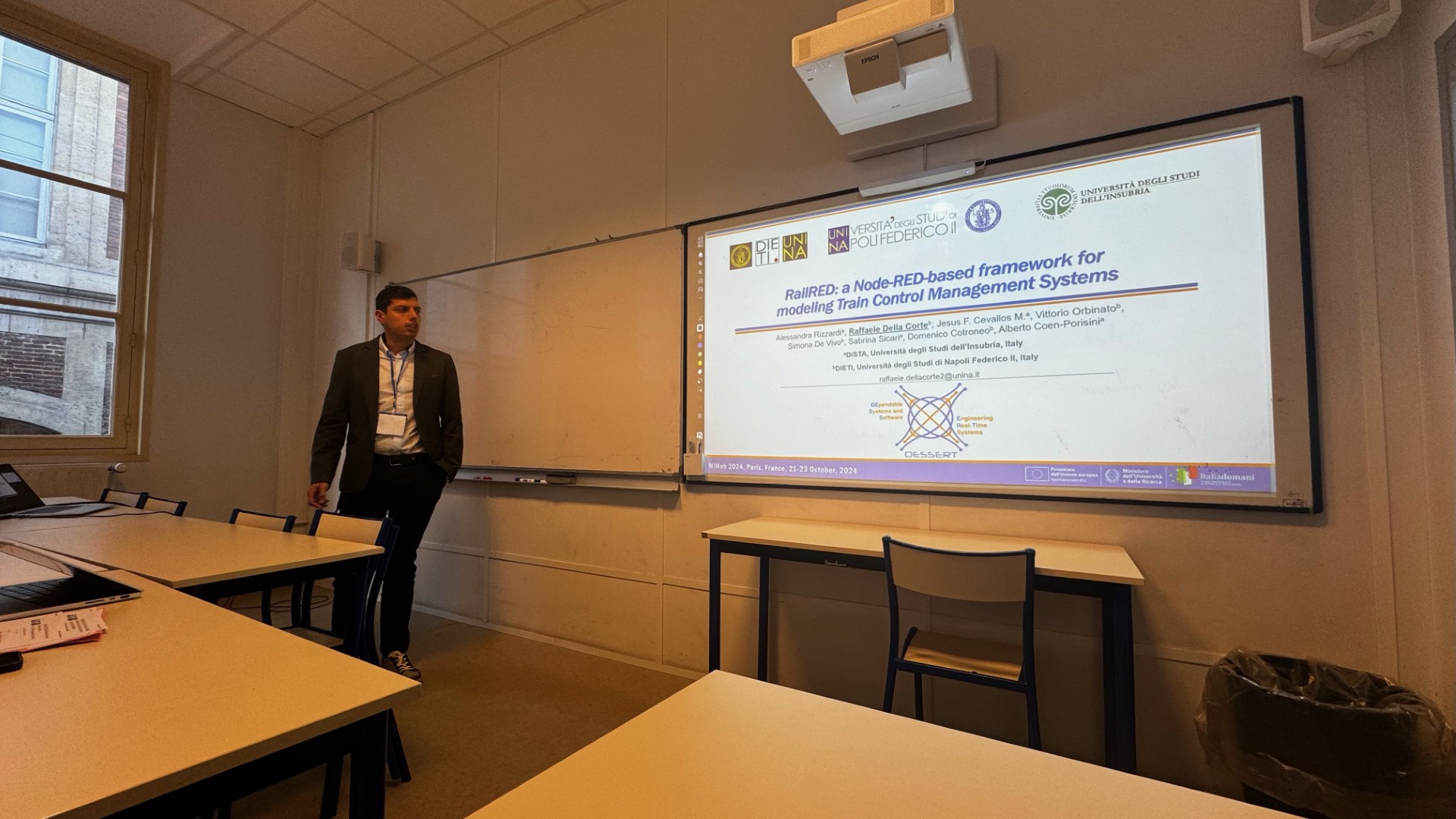
21-23 October 2024
Short Paper presentation at WiMob 2024
Thanks to Raffaele Della Corte for the exciting participation!

09-10 September 2024
Meeting of Serena-IIoT project in Naples
In the middle of the project's progress.

26 August 2024
Short Paper acceptance at WiMob 2024
Read the paper: RailRED: a Node-RED-based framework for modeling Train Control Management Systems.

06 October 2023
First Meeting of Serena-IIoT project
We are starting to work to the proposal...stay tuned!

30 September 2023
Project's website is online!
Keep in touch to follow the news of Serena-IIoT!
Dissemination
Pietro Liguori, Cristina Improta, Roberto Natella, Bojan Cukic, Domenico Cotroneo: Enhancing robustness of AI offensive code generators via data augmentation. Empirical Software Engineering (Springer): 30: 1-7 (2025)
Alessandra Rizzardi, Sabrina Sicari, Alberto Coen-Porisini: Attribute-based policies through microservices in a smart home scenario. Computer Communications (Elsevier): 31: 108039 (2025)
Sabrina Sicari, Jesus F. Cevallos M., Alessandra Rizzardi, Alberto Coen-Porisini: Open-Ethical AI: Advancements in Open-Source Human-Centric Neural Language Models. ACM Computing Surveys: 57 (4): 83 (2024)
Jesus F. Cevallos M., Alessandra Rizzardi, Sabrina Sicari, Alberto Coen-Porisini: ASAP: Automatic Synthesis of Attack Prototypes, an online-learning, end-to-end approach. Computer Networks (Elsevier): 110828 (2024)
Pietro Liguori, Cristina Improta, Roberto Natella, Bojan Cukic, Domenico Cotroneo: Enhancing AI-based Generation of Software Exploits with Contextual Information. The 35th IEEE International Symposium on Software Reliability Engineering (ISSRE 2024)
Alessandra Rizzardi, Raffaele Della Corte, Jesus F. Cevallos M., Vittorio Orbinato, Simona De Vivo, Sabrina Sicari, Domenico Cotroneo, Alberto Coen-Porisini: RailRED: a Node-RED-based framework for modeling Train Control Management Systems. 20th International Conference on Wireless and Mobile Computing, Networking and Communications (WiMob 2024)
Alessandra Rizzardi, Sabrina Sicari, Jesus F. Cevallos M., Alberto Coen-Porisini: IoT-driven Blockchain to manage the Healthcare Supply Chain and protect Medical Records. Future Generation Computer Systems (Elsevier): 161: 415-431 (2024)
Jesus F. Cevallos M., Alessandra Rizzardi, Sabrina Sicari, Alberto Coen-Porisini: NERO: NEural algorithmic reasoning for zeRO-day attack detection in the IoT: A hybrid approach. Computers&Security (Elsevier): 142: 103898 (2024)
Raffaele Della Corte, Roberto Pietrantuono: Towards Log-driven Testing through Transformers: A Preliminary Study. 19th European Dependable Computing Conference (EDCC 2024)
Domenico Cotroneo, Cristina Improta, Pietro Liguori, Roberto Natella: Vulnerabilities in AI Code Generators: Exploring Targeted Data Poisoning Attacks. The 32nd IEEE/ACM International Conference on Program Comprehension (ICPC 2024)
Domenico Cotroneo, Pietro Liguori: Neural Fault Injection: Generating Software Faults from Natural Language. The 54th Annual IEEE/IFIP International Conference on Dependable Systems and Networks (DSN 2024), Disrupt Track
Alessandra Rizzardi, Sabrina Sicari, Alberto Coen-Porisini: Towards rapid modelling and prototyping of indoor and outdoor monitoring applications. Sustainable Computing: Informatics and Systems (Elsevier): 41: 100951 (2024)
© 2023 All rights reserved
